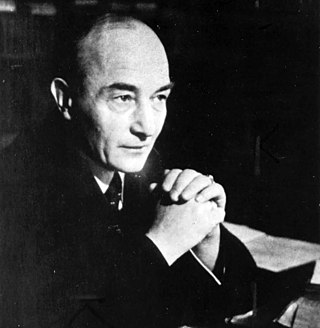
Robert Musil was an Austrian philosophical writer. His unfinished novel, The Man Without Qualities, is generally considered to be one of the most important and influential modernist novels.

Katherine Womeldorf Paterson is an American writer best known for children's novels, including Bridge to Terabithia. For four different books published 1975–1980, she won two Newbery Medals and two National Book Awards. She is one of four people to win the two major international awards; for "lasting contribution to children's literature" she won the biennial Hans Christian Andersen Award for Writing in 1998 and for her career contribution to "children's and young adult literature in the broadest sense" she won the Astrid Lindgren Memorial Award from the Swedish Arts Council in 2006, the biggest monetary prize in children's literature. Also for her body of work she was awarded the NSK Neustadt Prize for Children's Literature in 2007 and the Laura Ingalls Wilder Medal from the American Library Association in 2013. She was the second US National Ambassador for Young People's Literature, serving 2010 and 2011.

Mary Elizabeth Anania Edwards was an American attorney, author, and health care activist. She was married to John Edwards, the former U.S. Senator from North Carolina who was the 2004 United States Democratic vice-presidential nominee.
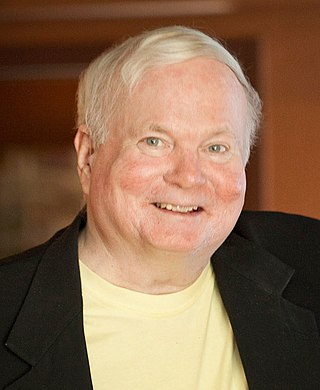
Donald Patrick Conroy was an American author who wrote several acclaimed novels and memoirs; his books The Water is Wide, The Lords of Discipline, The Prince of Tides and The Great Santini were made into films, the last two being nominated for Oscars. He is recognized as a leading figure of late-20th-century Southern literature.

In the United States, a military brat is the child of a parent(s), adopted parent(s) or legal guardian(s) serving full-time in the United States Armed Forces, whether current or former. The term military brat can also refer to the subculture and lifestyle of such families.

The Official Preppy Handbook (1980) is a satirical reference guide edited by Lisa Birnbach and written by Jonathan Roberts, Carol McD. Wallace, Mason Wiley, and Birnbach. It discusses an aspect of North American culture described as prepdom. In addition to insights on prep school and university life at socially acceptable schools, it illuminates many aspects of the conservative upper middle class, old money WASP society. Topics range from appropriate clothing for social events to choosing the correct college and major.

Camp followers are civilians who follow armies. There are two common types of camp followers; first, the spouses and children of soldiers, who follow their spouse or parent's army from place to place; the second type of camp followers have historically been informal army service providers, servicing the needs of encamped soldiers, in particular selling goods or services that the military does not supply—these have included cooking, laundering, liquor, nursing, sexual services and sutlery.
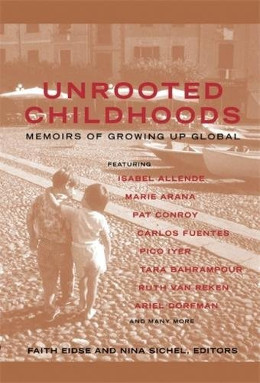
Unrooted Childhoods: Memoirs of Growing up Global is a book of memoirs of several people who grew up in multiple countries, or moving frequently between distant regions within the same country, also known as third culture kids. It is edited by Faith Eidse and Nina Sichel. It documents the life, including the unique challenges, feelings of difference/outsiderism, and gifts, of growing up in multiple nations, cultures, and language-regions. It was first published in 2004.
Ruth Hill Useem was an American sociologist and anthropologist who introduced the concept of Third Culture Kid (TCK) to describe children who spent part of their developmental years in a foreign culture due to their parents' working abroad. Her work was the first to identify common themes among various TCKs that may affect them throughout their lives. After her retirement in 1985, Useem focused her research on Adult Third Culture Kids (ATCKs).

Center for the Intellectual Development of Child and Adolescent is an Iranian institution with a wide range of cultural and artistic activities in the field of mental and cultural development for children and young adults. The organization was at the center of the vanguard of cultural production in the late 60s and early 1970s and is the platform through which many of Iran's most regarded artists and filmmakers, such as Abbas Kiarostami and Morteza Momayez and Babak Niktalab, launched their careers.

Michelle Ferguson-Cohen is a children's book author, illustrator, and publisher. Her father is a career military officer and Vietnam veteran. As a military brat herself, many of the picture books she develops are written for and feature military brats.
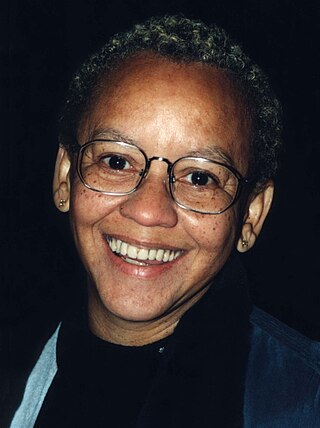
Yolande Cornelia "Nikki" Giovanni Jr. is an American poet, writer, commentator, activist, and educator. One of the world's most well-known African-American poets, her work includes poetry anthologies, poetry recordings, and nonfiction essays, and covers topics ranging from race and social issues to children's literature. She has won numerous awards, including the Langston Hughes Medal and the NAACP Image Award. She has been nominated for a Grammy Award for her poetry album, The Nikki Giovanni Poetry Collection. Additionally, she has been named as one of Oprah Winfrey's 25 "Living Legends".
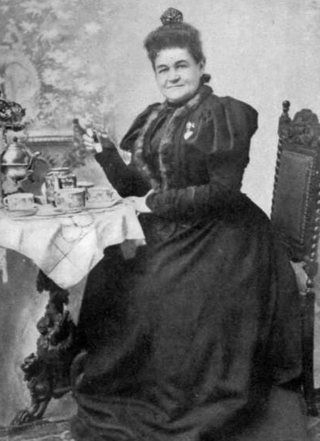
Mary Virginia Terhune, also known by her penname Marion Harland, was an American author who was prolific and bestselling in both fiction and non-fiction genres. Born in Amelia County, Virginia, she began her career writing articles at the age of 14, using various pennames until 1853, when she settled on Marion Harland. Her first novel Alone was published in 1854 and became an "emphatic success" following its second printing the next year. For fifteen years she was a prolific writer of best-selling women's novels, classified then as "plantation fiction", as well as writing numerous serial works, short stories, and essays for magazines.

Allen Saunders was an American writer, journalist and cartoonist who wrote the comic strips Steve Roper and Mike Nomad, Mary Worth and Kerry Drake.
A military brat is a child of serving or retired military personnel. Military brats are associated with a unique subculture and cultural identity. A military brat's childhood or adolescent life may be immersed in military culture to the point where the mainstream culture of their home country may seem foreign or peripheral. In many countries where there are military brat subcultures, the child's family moves great distances from one non-combat assignment to another for much of their youth.
Military dependents are the spouse(s), children, and possibly other familial relationship categories of a sponsoring military member for purposes of pay as well as special benefits, privileges and rights. This generic category is enumerated in great detail for U.S. military members.
Annette Patricia Lareau is a sociologist working at the University of Pennsylvania.
Donna Lynn Musil is an American documentary filmmaker, writer, and activist exploring the subculture of U.S. military brats. She wrote and directed the 2006 documentary Brats: Our Journey Home, a film about growing up the child of a military family and the effect it has on that child's adult life. She is also the founder of Brats Without Borders, a nonprofit organization dedicated to increasing awareness, celebration, and support for military brats and other third culture children.
Third culture kids (TCK) or third culture individuals (TCI) are people who were raised in a culture other than their parents' or the culture of their country of nationality, and also live in a different environment during a significant part of their child development years. They typically are exposed to a greater volume and variety of cultural influences than those who grow up in one particular cultural setting. The term applies to both adults and children, as the term kid refers to the individual's formative or developmental years. However, for clarification, sometimes the term adult third culture kid (ATCK) is used.

Lora Beldon is an American artist, curator, and arts educator. Her primary body of work explores the culture, history, and the effect of combat PTSD on U.S. military brats. She is founder of the Military Kid Art Project (MKAP), which provides customized art programming for military children and teens. She lives and works in Richmond, Virginia.













